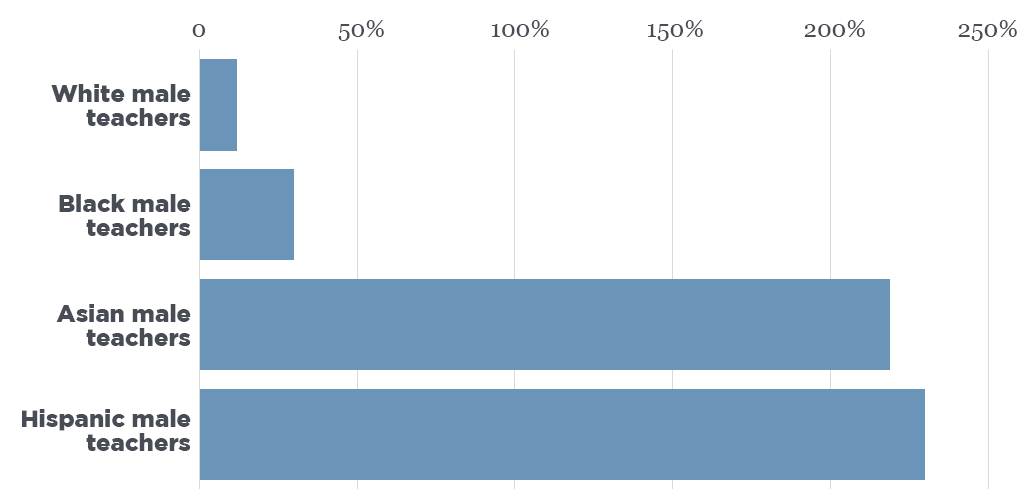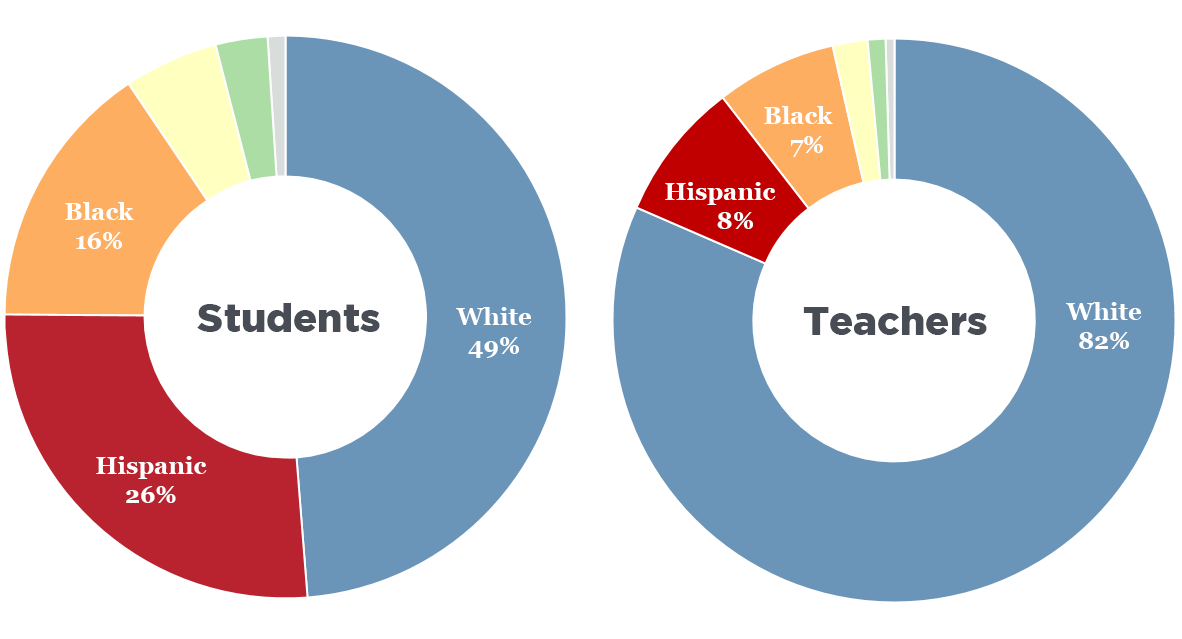Why are there so few black male teachers?
Only 2 percent of teachers in American public schools are black men. Why so few? Here's what the data show.

First thing you need to consider: Teaching is not a top career choice for men of any race.

But more men are going into teaching. There was a 22 percent increase in the number of male teachers between 1988 and 2012. The increases were especially large among Hispanic and Asian men. However, the increases have been more modest among black men. And an important note: The size of the teaching force in America increased 46 percent between 1988 and 2012. So, a 30 percent increase in black men isn't even keeping pace with overall growth.

Now here's another thing. For some reason, black teachers are disappearing. There were 4 percent fewer black teachers in American public schools in 2012 than there were in 2008.

Why are black teachers disappearing? There was an overall reduction in the teaching force in response to the recession in 2009. Some of the reduction in black teachers came as part of mass layoffs or school closings. The data suggest there's been a slowdown in the hiring of black teachers, too.
But there's a longer-term trend at work. Teacher turnover is increasing, and black teachers are more likely than white teachers to leave their jobs.

And here's an historical note: Black educators have disappeared before. In 1954, there were 82,000 black teachers in American public schools. In the decade following the Brown v. Board of Education decision, nearly 40,000 black teachers and principals lost their jobs because all-black schools shut down.
Now, why do black teachers quit? It seems to have something to do with the schools where they work. Teachers of color are two to three times more likely than white teachers to work in high-poverty, urban schools.

Let me tell you about some of the black male teachers I talked to.
Robert Parker was inspired to be a teacher by a quote attributed to Frederick Douglass.
"It is easier to build strong children than to repair broken men."
"It was like a light bulb went off in my head when I heard that quote," said Parker. "I was thinking, what's the best way? How can I change the trajectory of some of the young men and women from communities that were similar to mine? And I started thinking, a school would be the best way."
But the working conditions in many high-poverty, urban schools are not conducive to long, fulfilling careers — for anyone.
Kyle Boyer quit his job at one of those schools. He says teachers were given little autonomy to run their classrooms the way they thought best. And there was lots of pressure to raise test scores.
"When you're constantly under the pressures of data and assessment [and there's no] freedom and trust to innovate, I think it leads folks to not really be happy with their jobs," he said.
On surveys, 50 percent of teachers of color who leave their jobs cite job dissatisfaction. Here's a graph that shows what they are dissatisfied with.

The Learning Policy Institute released a report that examines the survey data and concluded this:
"Having influence and autonomy in the workplace are, of course, key hallmarks of respected professions. Schools that provided more teacher classroom discretion and autonomy, as well as schools with higher levels of faculty input into school decision making, had significantly lower levels of minority teacher turnover."
Policymakers and administrators often focus on recruitment as the key to getting more teachers of color into American classrooms. Richard Ingersoll, who's a professor at the University of Pennsylvania and one of the leading experts on the American teaching force, told me efforts to recruit more black men into education definitely pay off.
"But, the data also suggest that recruitment alone will not solve the minority teacher shortage if large numbers of those same teachers then leave within a few years," he said. "In short, we need to focus on both recruitment and retention."
That means improving the working conditions in high-poverty, urban schools.
Here's what students and teachers in American public schools look like.

Why does this matter? There's lots of research that shows a school system where most of the teachers are white and most of the kids are not is bad for kids of color, especially African-American students.
→ Here are some highlights from that research

The 2017 season of four education documentaries can be heard via the Educate podcast.
Subscribe now: Apple Podcasts | RadioPublic

